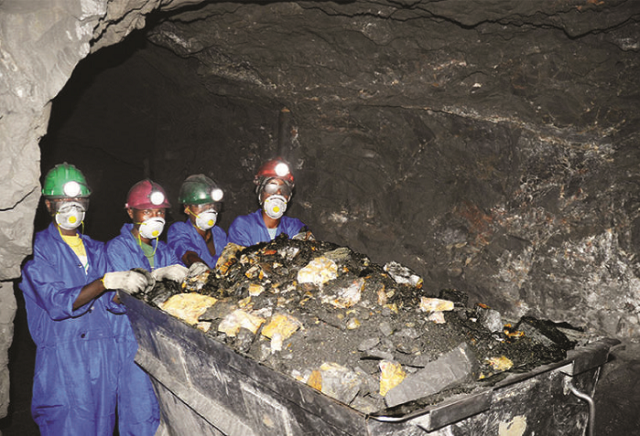
Rwanda has plans to start exporting processed minerals by the end of the year, in an effort to help stimulate domestic processing.
Emmanuel Munyangabe, the deputy director-general for Geology and Mining at the Ministry of Natural Resources revealed this to reporters on Jan. 21.
He said the country plans to install a new technology in separation of minerals which will allow the minerals to be sold separately both processed and unprocessed.
“Separation of minerals will enable us to significantly export new minerals like niobium, rare earth, and platinum group on a competitive basis,” he said.
According to the ministry, the government will also employ the separation technology in processing of coltan, wolfram, and cassiterite that have been previously exported in raw form.
Exporting raw minerals has made Rwanda non-competitive at global level as it increases operational costs. Exporters have to incur a purification charge fee of US$1,500 before minerals are allowed in the market.
Munyangabe said that the government is looking for experts who will train Rwanda locals in mineral refinery.
The ministry has also confirmed presence of new different minerals in the country such as gemstones, rare earth minerals, copper, cobalt, nickel, iron, lithium and others.
Overhauling Rwanda’s mining sector is one of the five key interventions to attain Vision 2020’s plan to grow the country’s average annual export rate by 28%.
Mining production is expected to triple by 2020 and the potential for a mining services industry for the country and the region will be developed through adding value and diversifying mineral products by processing domestic and imported ores and manufacturing construction materials and jewellery.
According to 2014 statistics from the ministry of natural resources, the mining revenues were valued at 251.2 million U.S. dollars, up from 164.7 million U.S. dollars in 2011. In the same year Rwanda exported a total of 16,357 tonnes of cassiterite, coltan and wolframite and other minerals such as iron ore.
Rwanda Second Economic Development and Poverty Reduction Strategy (EDPRS2) aims to increase the value of mining exports to 400 million U.S. dollars a year by 2018.
The country has issued 548 mining permits to 213 registered mining entities, most of which covered surface areas averaging less than 4 hectares of land.
****
Source: Xinhua
****
editor@independent.co.ug
 The Independent Uganda: You get the Truth we Pay the Price
The Independent Uganda: You get the Truth we Pay the Price





